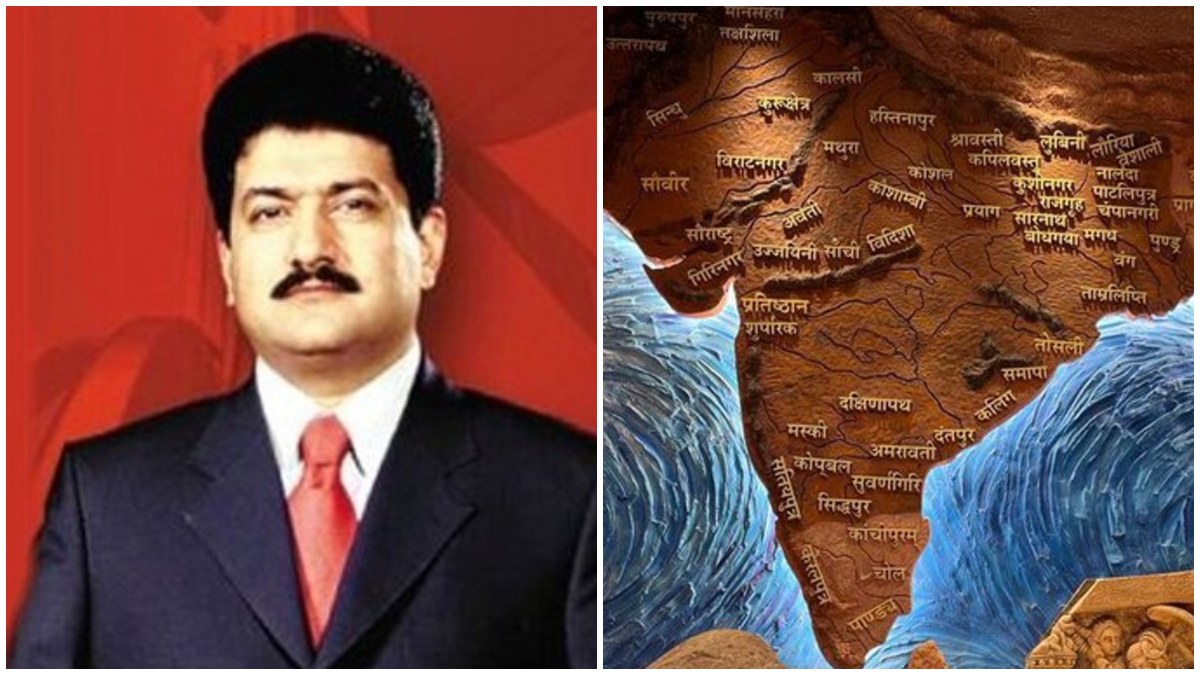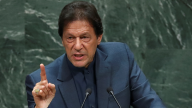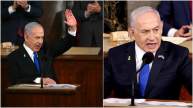During the current Lok Sabha elections in India, Pakistan has stirred controversy over the ‘Akhand Bharat’ graffiti displayed in the new Parliament building. Pakistani journalists and foreign affairs experts accuse India of threatening the security of neighboring countries with this gesture. They claim that India aims to assert its territorial claims on neighboring nations through this act.
What Did The Pakistani Journalist Say On ‘Akhand Bharat’?
In his talk show on Geo TV, Pakistani journalist Hamid Mir raised questions about the display of a map in the Parliament of any country including 5-6 neighboring nations, openly implying that Pakistan, Afghanistan, Bangladesh, Sri Lanka, Nepal, and Bhutan would all become part of India. He questioned whether Pakistan has any international platform where it can raise concerns about its security being threatened and seek assistance.
In response to Hamid Mir’s question, Pakistani diplomat Ajaz Ahmed Chaudhary advocated for all countries to diplomatically oppose such actions.
Hamid Mir urged Arab countries to protest against the ‘Akhand Bharat’ map, criticizing them for fostering closer ties with India. He emphasized the need to address the discrepancy between friendly gestures and India’s actions regarding neighboring countries.
Also Read: US Police Refute Reports Of Goldy Brar’s Murder: ‘Inaccurate’
Ajaz Ahmed Passes A Comment
Ajaz Ahmed, a Pakistani diplomat, commented that Arab countries are primarily focused on expanding trade relations with India, indicating that they are indifferent to India’s opinions about them. He continued by stating that India perceives the historical Arab presence in India as illegitimate and seeks their expulsion, even through violent means. This situation, he added, has led to severe challenges for Muslims in India.
During the talk show, Pakistani lawyer and international affairs expert Ahmar Bilal Sufi mentioned that when a country publishes a map and another country disagrees with it, the latter has a legal obligation to issue a response. Failure to do so implies tacit acceptance of the map.
He stated, “It is highly perilous when one country seeks to annex all its neighboring nations. India aims to assert its dominion over all its neighboring countries, constituting a grave violation of international law. India’s posture is extremely hazardous, and it is crucial to counter this stance. Failure to respond will be interpreted as acquiescence.”
Bilal Sufi noted that India is officially crafting a narrative of creating a unified India, as articulated by Uttar Pradesh Chief Minister Yogi Adityanath. In February of the previous year, CM Yogi labeled India as a ‘Hindu nation’ and expressed that the vision of ‘Akhand Bharat’ will materialize in the future.
The concept of ‘Akhand Bharat’ refers to a unified India that includes present-day Afghanistan, Bangladesh, Bhutan, Maldives, Myanmar, Nepal, Pakistan, and Sri Lanka.
RSS Prioritises ‘Akhand Bharat’ agenda
The Rashtriya Swayamsevak Sangh (RSS) has prioritized the ‘Akhand Bharat’ agenda. The Sangh asserts that the areas comprising Pakistan, Bangladesh, Afghanistan, Myanmar, Sri Lanka, and Tibet constitute a single nation based on shared Hindu cultural traits.
India has responded to the objections from countries like Pakistan and Nepal regarding the ‘Akhand Bharat’ graffiti in Parliament.
Last year, the former spokesperson of the Ministry of External Affairs, Arindam Bagchi, clarified, ‘The Parliament graffiti represents Ashoka’s empire. The painter’s description illustrates Ashoka’s responsible and dedicated governance. The graffiti and accompanying plaque convey this message.’
Also Read: Terror Threat To T20 World Cup From Pakistan, Security Concerns Rise










